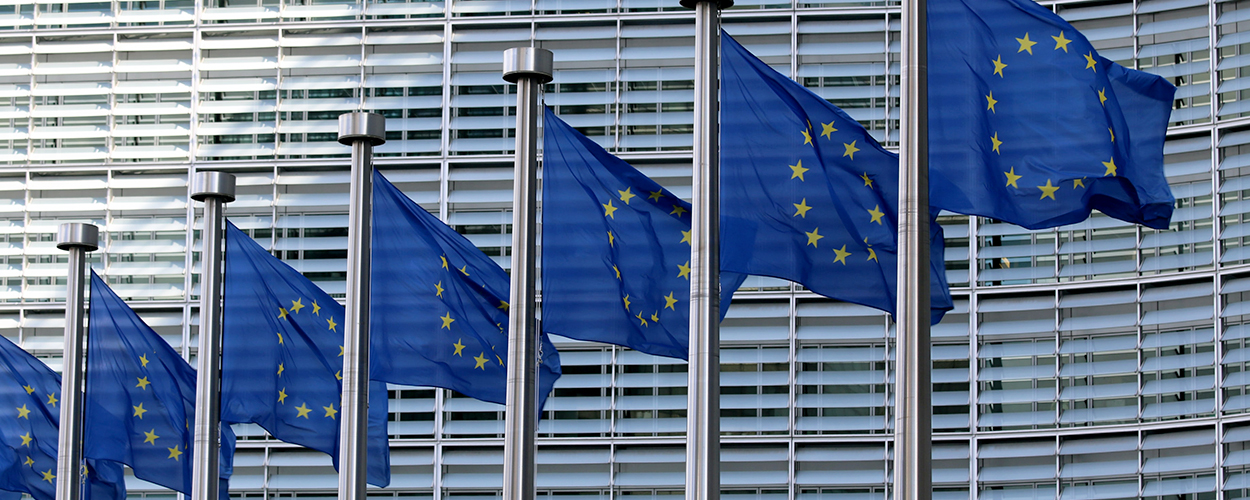This website uses cookies so that we can provide you with the best user experience possible. Cookie information is stored in your browser and performs functions such as recognising you when you return to our website and helping our team to understand which sections of the website you find most interesting and useful.
Business News Digital Labels & Publishers Legal
Copyright groups criticise EU Council’s ‘general approach’ to Digital Services Act
By Chris Cooke | Published on Monday 29 November 2021

Trade groups representing various copyright industries – including music industry groups like AEPO ARTIS, ECSA, FIM, GESAC, IAO, ICMP, IFPI, IMPALA and IMPF – all signed a letter last week expressing concern about the current direction the EU Digital Services Act is taking.
The DSA is a set of proposals that aims to deal with the negative impact of harmful content online by increasing the obligations of digital platforms. It’s not specifically focused on copyright matters – however, some of the proposals within it might impact on how digital services deal with copyright infringing material that flows through their networks. And that impact might be positive or negative.
The proposals are currently working their way through the European Union’s law-making systems, with a lot of the attention to date falling on debates regarding the DSA in the European Parliament. However, last week’s letter related to what has been happening in the EU Council, which brings together relevant ministers from the governments of each EU member state.
The letter said: “We are very concerned that the ‘general approach’ on the Digital Services Act adopted today by the Council fails to deliver on the DSA’s original objective of establishing more accountability for online platforms and creating a safer and more trustworthy online environment”.
“Paradoxically”, it added, “some of the modifications proposed would have the exact opposite effect. They would weaken the current liability regime and have a detrimental impact on the existing standards and good practices for addressing illegal content and activities in some areas, including online infringements of copyright and related rights”.
Of particular concern are proposals that digital companies continue to benefit from safe harbours that reduce their liabilities in relation to harmful content “even when they do not comply with their due diligence obligations”, and also that search engines would benefit from new limitations on their liabilities.
“The introduction of a ‘safe harbour’ for search engines alongside ‘caching’ services … would go against the EU’s general political commitment not to modify or broaden the liability limitations under the [existing] e-Commerce Directive. The goal of increasing the accountability of search engines should be achieved through the introduction of effective due diligence obligations, not by making them beneficiaries of a broad and unjustified ‘safe harbour'”.
“This new ‘safe harbour'”, the letter went on, “would fall below several existing national measures and obligations and would remove all incentives for search engines to stop enabling access to illegal or harmful content – and make money on the back of such activity”.
The copyright industry reps also again called for stronger ‘know your business customer’ obligations to be introduced by the new EU act. Commercial entities online are meant to be transparent about who is operating a service and where they are based, however plenty of rogue operators fail to do this, making it harder to pursue legal claims against them.
To that end, campaigners are calling for new rules that force online intermediaries to ensure their business customers comply with these obligations. In the original draft of the DSA, such ‘know your business customer’ rules were only included for online marketplaces.
In their letter last week, the copyright groups said: “Extending the scope of application of the obligations to ensure the traceability of business users – ‘Know Your Business Customer’ – is necessary to tackle the serious problem of illegal operators acting on a commercial scale and hiding behind false identities”.
“There should also be more effective tools introduced when it comes to addressing rogue players, repeat infringers and systematic illegal activities”, it added. “A meaningful mechanism for the enforcement of these obligations should be established to ensure that EU consumers have as little exposure as possible to illegal content, services and products”.
The letter then concluded: “The EU has a unique opportunity to create a secure, well-functioning online environment to improve consumer trust and enable our creative sector to grow in the EU digital single market. It is therefore crucial for member states, together with other co-legislators, to reassess the above-mentioned proposals”.





